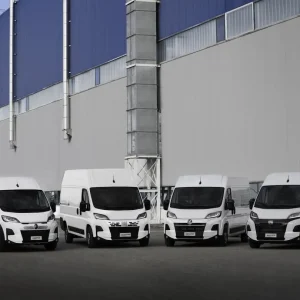A new addition to the What Van? Awards in 2017 is the risk management category.
Every fleet operating light commercial vehicles should have a strategy in place to protect its assets, ensure best practice and, far more importantly, to minimise potential hazards for its workforce. Drivers also need to be clear about where they stand and what is expected of them when operating LCVs at work.
What Van? aims to recognise the outstanding organisations and initiatives in the field, which is why the winner of the inaugural award is the Fleet Operator Recognition Scheme (FORS).
A bare minimum approach to risk management is to regularly check employees’ driving licences and to ensure vehicles are taxed and have valid MoT certificates.
However, FORS goes much further than this in helping van operators to run safer, more efficient and more environmentally friendly fleets as a consequence of signing up to the scheme.
With safety at its heart, FORS is a voluntary, best-practice initiative dedicated to raising the standards of van operations at operators’ premises, but more especially on the road.
Through best practice, which includes tyre and maintenance checks before every driver’s shift, van fleets of any size can enjoy tangible benefits, including improved fuel efficiency, fewer Penalty Charge Notices, a reduction in downtime, and improved driver retention. Crucially, with increasing numbers of contractors insisting their transport suppliers operate with FORS membership, van operators will also be placing themselves in the shop window for the next lucrative job by signing up to an initiative that endorses their high standards.
Seeing the FORS logo displayed on the back of an LCV enables potential customers to distinguish FORS operators from the rest.
John Hix, director FORS Community Partnership (FCP), says: “Our vision is to enable all fleet operators to attain and maintain the best possible level of productivity and efficiency with the least impact on society and the environment and to facilitate continuous improvements in operating standards.”
Transport for London (TfL) ran FORS from its inception in 2008 until the end of 2014 when it transferred operation of the scheme, as a concession, to the FCP, which is led by AECOM, a global provider of professional technical and management support, with the aim of rolling it out nationally.
The scheme operates on an increasingly rigorous three-tier safety scale with Bronze, Silver and Gold membership levels. To progress, an operator must first meet all the requirements of the lower award.
The four key areas to the FORS Standard cover Management, Vehicles, Drivers and Operations.
The Standard is upgraded every two years with the latest version (4.0) going live in September 2016.
Membership fees range from £65 a year for an operator with a single vehicle to £2,250 for operations with more than 100 CVs.
FORS claims its 3,600-strong membership operates 207,000 vehicles, of which two-thirds are light commercials.
Highly Commended: AA Drivetech

AA Drivetech, the AA’s Risk Management and driver training division, is also worthy of recognition. It offers comprehensive risk management programmes to drivers, and in 2015 joined the Energy Saving Trust’s eco training scheme.
This Department for Transport scheme aims to increase driver safety and force down fuel costs, with employees who take the course averaging a 15% reduction.
AA Drivetech says a comprehensive risk management programme can reduce insurance premiums by at least 15%, improve fuel consumption by 7%, cut by 5% a business’s spend on durables such as brakes and tyres, and improve, through driver training, a vehicle’s residual value by around 4%.





